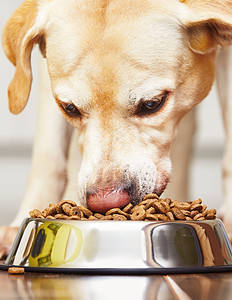Nutrition and Feeding
Dog Nutrition and Feeding for Dogs
Proper nutrition and feeding are essential to maintaining the overall health and well-being of your dog. Regardless of the breed, all dogs require a balanced diet to support their growth, development, and ongoing vitality. This category serves as a comprehensive resource for dog owners, covering essential topics related to nutrition and feeding for dogs. Discover the importance of dietary needs, feeding practices, and tips to ensure your furry friend remains healthy and happy.

Understanding Nutritional Requirements
Dogs, like humans, have specific nutritional requirements that must be met to ensure they grow and develop properly. Adequate nutrition is not only important for physical health but also supports cognitive function, energy levels, and even behavior. In this category, you will find information on the various nutrients that are essential for a dog’s well-being, including proteins, fats, carbohydrates, vitamins, and minerals. Learn about their roles and the recommended daily allowances to help you make informed decisions about your dog’s diet.
Unique Dietary Needs for Different Life Stages
The age, size, breed, and activity level of your dog are all factors that play a role in determining the ideal diet. Each stage of a dog’s life has different nutritional needs. From puppies to seniors, this category explores the unique dietary requirements for dogs at various life stages, helping you to understand how to adjust your pet’s diet as they grow and age. Gain insights into the differences between breed-specific nutritional needs and find recommendations for the best diet for your dog’s unique characteristics.
Choosing the Right Dog Food
Commercial dog food can be a convenient option for many dog owners. However, with so many choices available on the market, it can be challenging to identify the best options for your pet. In this category, you will find discussions on the various types of dog food available, including dry, wet, raw, and homemade diets. Learn about the benefits and drawbacks of each option, and discover how to evaluate the quality of commercial dog food by understanding the label and ingredients.
Establishing Healthy Feeding Practices
Feeding practices are just as important as the food itself when it comes to your dog’s health. Proper portion control, feeding frequency, and monitoring for potential allergies or sensitivities are essential aspects of responsible dog ownership. This category provides valuable information on determining the right portion sizes, establishing a feeding schedule, and identifying signs of food intolerance. Additionally, explore the concept of rotational feeding and the benefits it can offer in terms of variety and nutritional balance.
Managing Your Dog’s Weight
Obesity is a common health issue among dogs, with many suffering from weight-related problems that can negatively impact their quality of life. In this category, you will find advice on how to maintain a healthy weight for your dog through a combination of proper nutrition and exercise. Learn how to recognize the signs of obesity, calculate your dog’s ideal weight, and develop a weight loss plan tailored to their specific needs.
Special Dietary Needs and Medical Conditions
Special dietary needs and medical conditions can also influence your dog’s nutrition and feeding requirements. This category covers common health issues that may require adjustments to your dog’s diet, such as diabetes, kidney disease, and food allergies. Learn how to work with your veterinarian to develop a nutrition plan that addresses your dog’s specific health needs and promotes optimal well-being.
Supplementing Your Dog’s Diet
Supplements can play a role in supporting your dog’s health, particularly if they have specific nutritional deficiencies or require additional support for certain conditions. In this category, you will find information on various supplements available for dogs, their potential benefits, and when they may be appropriate for your pet. Gain insights into the proper use of supplements and how to ensure they are safe and effective for your dog.
Explore more
Autoimmune Disorders in Dogs: Causes, Symptoms, & Treatment
Stomach Bloating in Dogs: Causes, Symptoms, & Treatment
Osteochondritis Dissecans: Causes, Symptoms, & Treatment
Bloat (gastric torsion) in Dogs – Symptoms, Treatment, Prevention
Ear Infections in Dogs: Causes, Symptoms, & Treatment
Elbow Dysplasia in Dogs: Diagnosing & Treating Joint Disorder
Allergies in Dogs: Causes, Symptoms, and Treatments
Dental Issues in Dogs: Causes, Symptoms, and Treatments
Patellar Luxation in Dogs: Causes, Symptoms, and Treatment Options
Advertisement